- Home
- Michael Connelly
The Scarecrow
The Scarecrow Read online
Synopsis:
Forced out of the Los Angeles Times amid the latest budget cuts, newspaperman Jack McEvoy decides to go out with a bang, using his final days at the paper to write the definitive murder story of his career. He focuses on Alonzo Winslow, a 16-year-old drug dealer in jail after confessing to a brutal murder. But as he delves into the story, Jack realizes that Winslow's so-called confession is bogus. The kid might actually be innocent. Jack is soon running with his biggest story since The Poet made his career years ago. He is tracking a killer who operates completely below police radar—and with perfect knowledge of any move against him. Including Jack's.
The Scarecrow
Michael Connelly
To James Crumley, for The Last Good Kiss
ONE: The Farm
Carver paced in the control room, watching over the front forty. The towers were spread out before him in perfect neat rows. They hummed quietly and efficiently and even with all he knew, Carver had to marvel at what technology had wrought. So much in so little space. Not a stream but a swift and torrid river of data flowing by him every day. Growing in front of him in tall steel stalks. All he needed to do was to reach in, to look and to choose. It was like panning for gold.
But it was easier.
He checked the overhead temperature gauges. All was perfect in the server room. He lowered his eyes to the screens on the workstations in front of him. His three engineers worked in concert on the current project. An attempted breach thwarted by Carver’s skill and readiness. Now the reckoning.
The would-be intruder could not penetrate the walls of the farmhouse, but he had left his fingerprints all over it. Carver smiled as he watched his men retrieve the bread crumbs, tracing the IP address through the traffic nodes, a high-speed chase back to the source. Soon Carver would know who his opponent was, what firm he was with, what he had been looking for and the advantage he hoped to gain. And Carver would take a retaliatory action that would leave the hapless contender crumpled and destroyed. Carver showed no mercy. Ever.
The mantrap alert buzzed from overhead.
“Screens,” Carver said.
The three young men at the workstations typed commands in unison, which hid their work from the visitors. The control room door opened and McGinnis stepped in with a man in a suit. Carver had never seen him before.
“This is our control room and through the windows there, you see what we call the ‘front forty,’ ” McGinnis said. “All of our colocation services are centered here. This is primarily where your firm’s material would be held. We have forty towers in here holding close to a thousand dedicated servers. And, of course, there’s room for more. We’ll never run out of room.”
The man in the suit nodded thoughtfully.
“I’m not worried about room. Our concern is security.”
“Yes, this is why we stepped in here. I wanted you to meet Wesley Carver. Wesley wears a number of hats around here. He is our chief technology officer as well as our top threat engineer and the designer of the data center. He can tell you all you need to know about colocation security.”
Another dog and pony show. Carver shook the suit’s hand. He was introduced as David Wyeth of the St. Louis law firm Mercer and Gissal. It sounded like crisp white shirts and tweed. Carver noticed that Wyeth had a barbecue stain on his tie. Whenever they came into town McGinnis took them to eat at Rosie’s Barbecue.
Carver gave Wyeth the show by rote, covering everything and saying everything the silk-stocking lawyer wanted to hear. Wyeth was on a barbecue-and-due-diligence mission. He would go back to St. Louis and report on how impressed he had been. He would tell them that this was the way to go if the firm wanted to keep up with changing technologies and times.
And McGinnis would get another contract.
All the while he spoke, Carver was thinking about the intruder they had been chasing. Out there somewhere, not expecting the come-uppance that was speeding toward him. Carver and his young disciples would loot his personal bank accounts, take his identity and hide photos of men having sex with eight-year-old boys on his work computer. Then he would crash it with a replicating virus. When the intruder couldn’t fix it he would call in an expert. The photos would be found and the police would be called.
The intruder would no longer be a concern. Another threat kept away by the Scarecrow.
“Wesley?” McGinnis said.
Carver came out of the reverie. The suit had asked a question. Carver had already forgotten his name.
“Excuse me?”
“Mr. Wyeth asked if the colocation center had ever been breached.”
McGinnis was smiling, already knowing the answer.
“No, sir, we’ve never been breached. To be honest, there have been a few attempts. But they have failed, resulting in disastrous consequences for those who tried.”
The suit nodded somberly.
“We represent the cream of the crop of St. Louis,” he said. “The integrity of our files and our client list is paramount to all we do. That’s why I came here personally.”
That and the strip club McGinnis took you to, Carver thought but didn’t say. He smiled instead but there was no warmth in it. He was glad McGinnis had reminded him of the suit’s name.
“Don’t worry, Mr. Wyeth,” he said. “Your crops will be safe on this farm.”
Wyeth smiled back.
“That’s what I wanted to hear,” he said.
TWO: The Velvet Coffin
Every eye in the newsroom followed me as I left Kramer’s office and walked back to my pod. The long looks made it a long walk. The pink slips always came out on Fridays and they all knew I had just gotten the word. Except they weren’t called pink slips anymore. Now it was an RIF form—as in Reduction in Force.
They all felt the slightest tingle of relief that it hadn’t been them and the slightest tingle of anxiety because they still knew that no one was safe. Any one of them could be called in next.
I met no one’s stare as I passed beneath the Metro sign and headed back into podland. I moved into my cubicle and slipped into my seat, dropping from sight like a soldier diving into a foxhole.
Immediately my phone buzzed. On the read-out I saw that it was my friend Larry Bernard calling. He was only two cubicles away but knew if he had come to me in person it would have been a clear signal for others in the newsroom to crowd around me and ask the obvious. Reporters work best in packs like that.
I put on my headset and picked up the call.
“Hey, Jack,” he said.
“Hey, Larry,” I said.
“So?”
“So what?”
“What did Kramer want?”
He pronounced the assistant managing editor’s name Crammer, which was the nickname bestowed on Richard Kramer years earlier when he was an assignment editor more concerned with the quantity than the quality of news he got his reporters to produce for the paper. Other variations of his full or partial name evolved over time as well.
“You know what he wanted. He gave me notice. I’m out of here.”
“Holy fucking shit, you got pinked!”
“That’s right. But remember, we call it ‘involuntary separation’ now.”
“Do you have to clear out right now? I’ll help you.”
“No, I’ve got two weeks. May twenty-second and I’m history.”
“Two weeks? Why two weeks?”
Most RIF victims had to clear out immediately. This edict was instated after one of the first recipients of a layoff notice was allowed to stay through the pay period. Each of his last days, people saw him in the office carrying a tennis ball. Bouncing it, tossing it, squeezing it. They didn’t realize that each day it was a different ball. And each day he flushed a ball down the toilet in the men’s ro
om. About a week after he was gone the pipes backed up, with devastating consequences.
“They gave me extra time if I agreed to train my replacement.”
Larry was silent for a moment as he considered the humiliation of having to train one’s own replacement. But to me two weeks’ pay was two weeks’ pay I wouldn’t get if I didn’t take the deal. And besides that, the two weeks would give me time to say proper good-byes to those in the newsroom and on the beat who deserved them. I considered the alternative of being walked out the door by security with a cardboard box of personal belongings even more humiliating. I was sure they would watch me to make sure I wasn’t carrying tennis balls to work, but they didn’t have to worry. That wasn’t my style.
“So that’s it? That’s all he said? Two weeks and you’re out?”
“He shook my hand and said I was a handsome guy, that I should try TV.”
“Oh, man. We gotta get drunk tonight.”
“I am, that’s for sure.”
“Man, this ain’t right.”
“The world ain’t right, Larry.”
“Who’s your replacement? At least that’s somebody who knows they’re safe.”
“Angela Cook.”
“Figures. The cops are going to love her.”
Larry was a friend but I didn’t want to be talking about all of this with him right now. I needed to be thinking about my options. I straightened up in my seat and looked over the top of the four-foot walls of the cubicle. I saw no one still looking at me. I glanced toward the row of glass-walled editors’ offices. Kramer’s was a corner office and he was standing behind the glass, looking out at the newsroom. When his eyes came to mine he quickly kept them moving.
“What are you going to do?” Larry asked.
“I haven’t thought about it but I’m about to right now. Where do you want to go, Big Wang’s or the Short Stop?”
“Short Stop. I was at Wang’s last night.”
“See you there, then.”
I was about to hang up when Larry blurted out a last question.
“One more thing. Did he say what number you were?”
Of course. He wanted to know what his own chances were of surviving this latest round of corporate bloodletting.
“When I went in he started talking about how I almost made it and how hard it was to make the last choices. He said I was ninety-nine.”
Two months earlier the newspaper announced that one hundred employees would be eliminated from the editorial staff in order to cut costs and make our corporate gods happy. I let Larry think for a moment about who might be number one hundred while I glanced at Kramer’s office again. He was still there behind the glass.
“So my coaching tip is to keep your head down, Larry. The axman’s standing at the glass looking for number one hundred right now.”
I hit the disconnect button but kept the headset on. This would hopefully discourage anybody in the newsroom from approaching me. I had no doubt that Larry Bernard would start telling other reporters that I had been involuntarily separated and they would come to commiserate. I had to concentrate on finishing a short on the arrest of a suspect in a murder-for-hire plot uncovered by the Los Angeles Police Department’s Robbery-Homicide Division. Then I could disappear from the newsroom and head to the bar to toast the end of my career in daily journalism. Because that’s what it was going to be. There was no newspaper out there in the market for an over-forty cop shop reporter. Not when they had an endless supply of cheap labor—baby reporters like Angela Cook minted fresh every year at USC and Medill and Columbia, all of them technologically savvy and willing to work for next to nothing. Like the paper and ink newspaper itself, my time was over. It was about the Internet now. It was about hourly uploads to online editions and blogs. It was about television tie-ins and Twitter updates. It was about filing stories on your phone instead of using it to call rewrite. The morning paper might as well be called the Daily Afterthought. Everything in it was posted on the web the night before.
My phone buzzed in my ear and I was about to guess it would be my ex-wife, having already heard the news in the Washington bureau, but the caller ID said VELVET COFFIN. I had to admit I was shocked. I knew Larry could not have gotten the word out that fast. Against my better judgment I took the call. As expected, the caller was Don Goodwin, self-appointed watchdog and chronicler of the inner workings of the L.A. Times.
“I just heard,” he said.
“When?”
“Just now.”
“How? I just found out myself less than five minutes ago.”
“Come on, Jack, you know I can’t reveal. But I’ve got the place wired. You just walked out of Kramer’s office. You made the thirty list.”
The “thirty list” was a reference to those who had been lost over the years in the downsizing of the paper. Thirty was old-time newspaper code for “end of story.” Goodwin himself was on the list. He had worked at the Times and was on the fast track as an editor until a change of ownership brought a change in financial philosophy. When he objected to doing more with less he was cut down at the knees and ended up taking one of the first buyouts offered. That was back when they offered substantial payments to those who would voluntarily leave the company—before the media company that owned the Times filed for bankruptcy protection.
Goodwin took his payout and set up shop with a website and a blog that covered everything that moved inside the Times. He called it thevelvetcoffin.com as a grim reminder of what the paper used to be: a place to work so pleasurable that you would easily slip in and stay till you died. With the constant changes of ownership and management, the layoffs, and the ever-dwindling staff and budget, the place was now becoming more of a pine box. And Goodwin was there to chronicle every step and misstep of its fall.
His blog was updated almost daily and was avidly and secretly read by everybody in the newsroom. I wasn’t sure much of the world beyond the thick bomb-proof walls of the Times even cared. The Times was going the way of all journalism and that wasn’t news. Even the New York By God Times was feeling the pinch caused by the shift of society to the Internet for news and advertising. The stuff Goodwin wrote about and was calling me about amounted to little more than rearranging deck chairs on the Titanic.
But in another two weeks it wouldn’t matter to me. I was moving on and already thinking about the half-started, half-assed novel I had in my computer. I was going to pull that baby out as soon as I got home. I knew I could milk my savings for at least six months and after that I could live off the equity in my house—what was left of it after the recent slide—if I needed to. I could also downsize my car and save on gas by getting one of those hybrid tin cans everybody in town was driving.
I was already beginning to see my shove out the door as an opportunity. Deep down, every journalist wants to be a novelist. It’s the difference between art and craft. Every writer wants to be considered an artist and I was now going to take my shot at it. The half novel I had sitting at home—the plot of which I couldn’t even correctly remember—was my ticket.
“Are you out the door today?” Goodwin asked.
“No, I got a couple weeks if I agreed to train my replacement. I agreed.”
“How fucking noble of them. Don’t they allow anybody any dignity over there anymore?”
“Hey, it beats walking out with a cardboard box today. Two weeks’ pay is two weeks’ pay.”
“But do you think that’s fair? How long have you been there? Six, seven years, and they give you two weeks?”
He was trying to draw an angry quote from me. I was a reporter. I knew how it worked. He wanted something juicy he could put in the blog. But I wasn’t biting. I told Goodwin I had no further comment for the Velvet Coffin, at least not until I was permanently out the door. He wasn’t satisfied with that answer and kept trying to pry a comment out of me until I heard the call-on-hold beep in my ear. I looked at the caller ID and saw xxxxx on the screen. This told me the call had come through the switchboard r
ather than from a caller who had my direct number. Lorene, the newsroom operator I could see on duty in the booth, would have been able to tell I was on my line, so her decision to park a call on it rather than take the message could only mean the caller had convinced her that the call was important.
I cut Goodwin off.
“Look, Don, I’ve got no comment and I need to go. I’ve got another call.”
I pushed the button before he could take a third swing at getting me to discuss my employment situation.
“This is Jack McEvoy,” I said after switching over.
Silence.
“Hello, this is Jack McEvoy. How can I help you?”
Call me biased but I immediately identified the person who replied as female, black and uneducated.
“McEvoy? When you goin’ to tell the truth, McEvoy?”
“Who is this?”
“You tellin’ lies, McEvoy, in your paper.”
I wished it was my paper.
“Ma’am, if you want to tell me who you are and what your complaint is about, I’ll listen. Otherwise, I’ m—”
“They now sayin’ Mizo is’n adult and what kinda shit is that? He did’n kill no whore.”
Immediately I knew it was one of those calls. Those calls on behalf of the “innocent.” The mother or girlfriend who had to tell me how wrong my story was. I got them all the time but not for too much longer. I resigned myself to handling this call as quickly and politely as possible.
“Who is Mizo?”
“Zo. My Zo. My son, Alonzo. He ain’ guilty a nothin’ and he ain’t no adult.”
I knew that was what she was going to say. They are never guilty. No one calls you up to say you got it right or the police got it right and their son or their husband or their boyfriend is guilty of the charges. No one calls you from jail to tell you they did it. Everybody is innocent. The only thing I didn’t understand about the call was the name. I hadn’t written about anybody named Alonzo—I would have remembered.

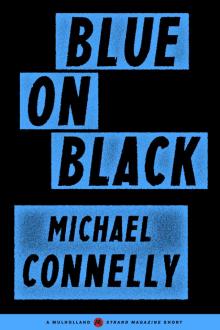 Blue on Black
Blue on Black The Black Ice (1993)
The Black Ice (1993) Crime Beat: A Decade of Covering Cops and Killers
Crime Beat: A Decade of Covering Cops and Killers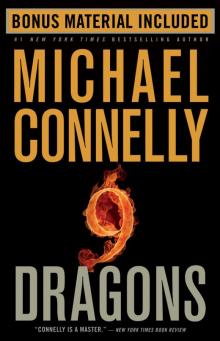 Nine Dragons
Nine Dragons The Late Show
The Late Show City of Bones
City of Bones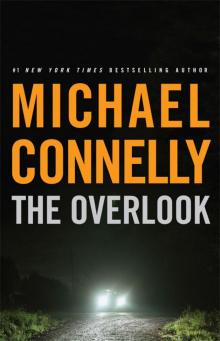 The Overlook
The Overlook The Crossing
The Crossing The Poet (1995)
The Poet (1995) Murder Worthy
Murder Worthy The Wrong Side of Goodbye
The Wrong Side of Goodbye Harry Bosch Novels, The: Volume 2
Harry Bosch Novels, The: Volume 2 The Harry Bosch Novels
The Harry Bosch Novels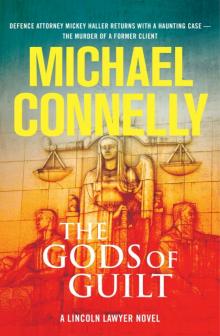 The Gods of Guilt
The Gods of Guilt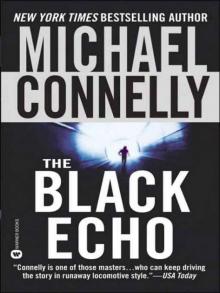 The Black Echo
The Black Echo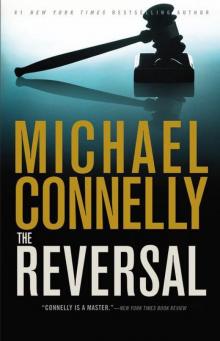 The Reversal
The Reversal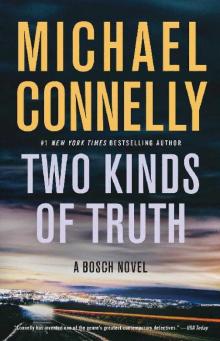 Two Kinds of Truth
Two Kinds of Truth The Best American Mystery Stories 2003
The Best American Mystery Stories 2003 The Rag
The Rag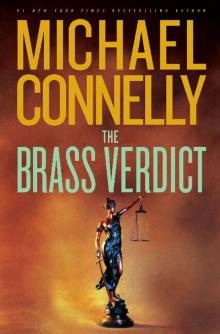 The Brass Verdict
The Brass Verdict The Black Echo (1992)
The Black Echo (1992)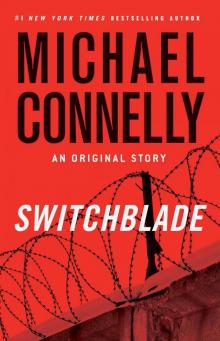 Switchblade
Switchblade The Last Coyote
The Last Coyote The Narrows
The Narrows The Concrete Blonde (1994)
The Concrete Blonde (1994)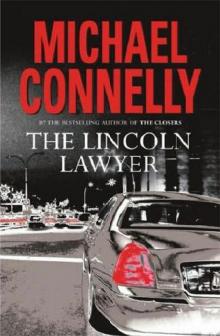 THE LINCOLN LAWYER (2005)
THE LINCOLN LAWYER (2005)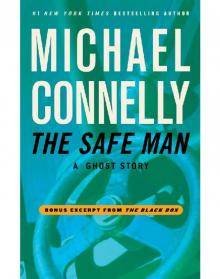 The Safe Man: A Ghost Story
The Safe Man: A Ghost Story Angels Flight (1998)
Angels Flight (1998) Void Moon
Void Moon The Drop
The Drop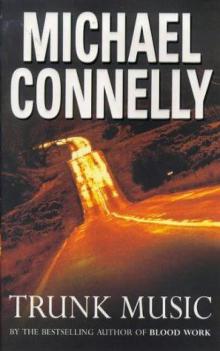 Trunk Music
Trunk Music The Night Fire
The Night Fire The Black Ice
The Black Ice Chased Down
Chased Down The Closers
The Closers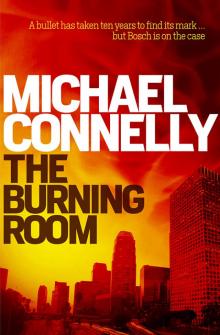 The Burning Room
The Burning Room Angels Flight
Angels Flight SSC (2012) Mulholland Drive
SSC (2012) Mulholland Drive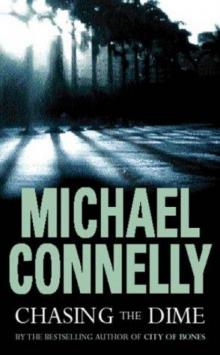 Chasing the Dime
Chasing the Dime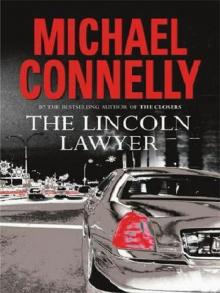 The Lincoln Lawyer
The Lincoln Lawyer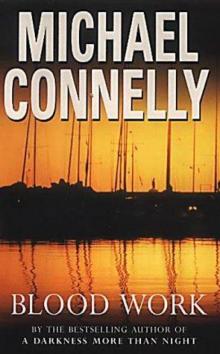 Blood Work (1998)
Blood Work (1998) Echo Park
Echo Park A Darkness More Than Night
A Darkness More Than Night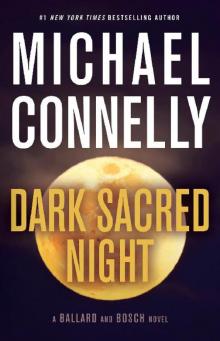 Dark Sacred Night - Ballard and Bosch #1;Renée Ballard #2
Dark Sacred Night - Ballard and Bosch #1;Renée Ballard #2 Lost Light
Lost Light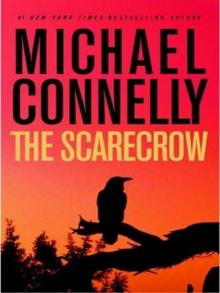 The Scarecrow
The Scarecrow The Concrete Blonde
The Concrete Blonde Angle of Investigation
Angle of Investigation Suicide Run: Three Harry Bosch Stories
Suicide Run: Three Harry Bosch Stories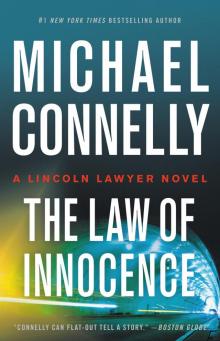 The Law of Innocence
The Law of Innocence Murder in Vegas: New Crime Tales of Gambling and Desperation
Murder in Vegas: New Crime Tales of Gambling and Desperation City Of Bones (2002)
City Of Bones (2002)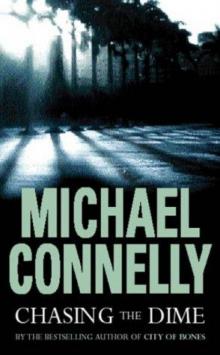 Chasing the Dime (2002)
Chasing the Dime (2002) The Safe Man
The Safe Man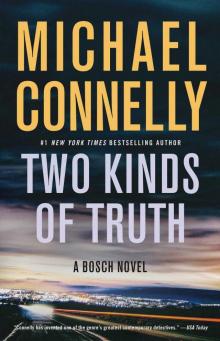 Two Kinds of Truth (A Harry Bosch Novel)
Two Kinds of Truth (A Harry Bosch Novel) Harry Bosch 01 - The Black Echo
Harry Bosch 01 - The Black Echo Angle of Investigation: Three Harry Bosch Short Stories
Angle of Investigation: Three Harry Bosch Short Stories The Harry Bosch Novels Box Set 1
The Harry Bosch Novels Box Set 1 The Concrete Blonde hb-3
The Concrete Blonde hb-3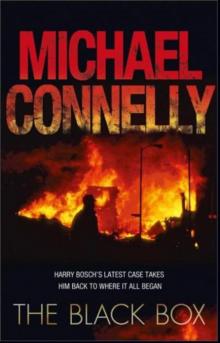 The Black Box hb-18
The Black Box hb-18 Short Stories
Short Stories The Black Ice hb-2
The Black Ice hb-2 The Last Coyote (1995)
The Last Coyote (1995) The Gods of Guilt mh-5
The Gods of Guilt mh-5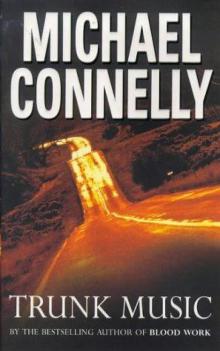 Trunk Music (1996)
Trunk Music (1996) Harry Bosch 02 - The Black Ice
Harry Bosch 02 - The Black Ice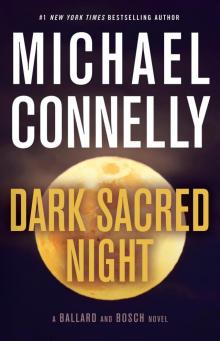 Dark Sacred Night
Dark Sacred Night Cielo Azul
Cielo Azul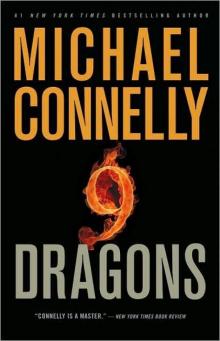 9 Dragons
9 Dragons The Narrows (2004)
The Narrows (2004) The Wrong Side of Goodbye (Harry Bosch Series)
The Wrong Side of Goodbye (Harry Bosch Series) In The Shadow Of The Master: Classic Tales by Edgar Allan Poe
In The Shadow Of The Master: Classic Tales by Edgar Allan Poe Void Moon (1999)
Void Moon (1999)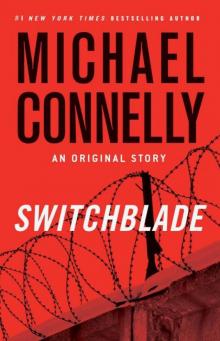 Switchblade: An Original Story (harry bosch)
Switchblade: An Original Story (harry bosch) The Harry Bosch Novels, Volume 2
The Harry Bosch Novels, Volume 2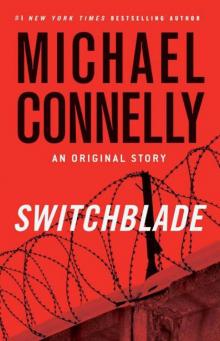 Switchblade: An Original Story
Switchblade: An Original Story The Closers (2005)
The Closers (2005) Crime Beat
Crime Beat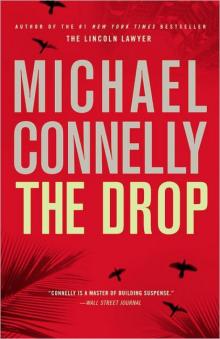 The Drop hb-17
The Drop hb-17 The Gods of Guilt (Mickey Haller 5)
The Gods of Guilt (Mickey Haller 5) Mulholland Dive: Three Stories
Mulholland Dive: Three Stories Lost Light (2003)
Lost Light (2003) Angle of Investigation: Three Harry Bosch Stories
Angle of Investigation: Three Harry Bosch Stories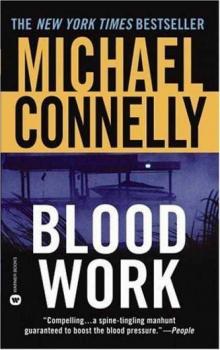 Blood Work
Blood Work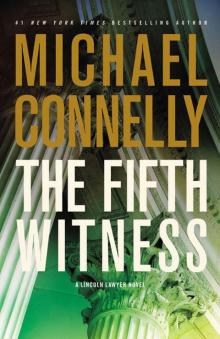 The Fifth Witness: A Novel
The Fifth Witness: A Novel A Darkness More Than Night (2000)
A Darkness More Than Night (2000)